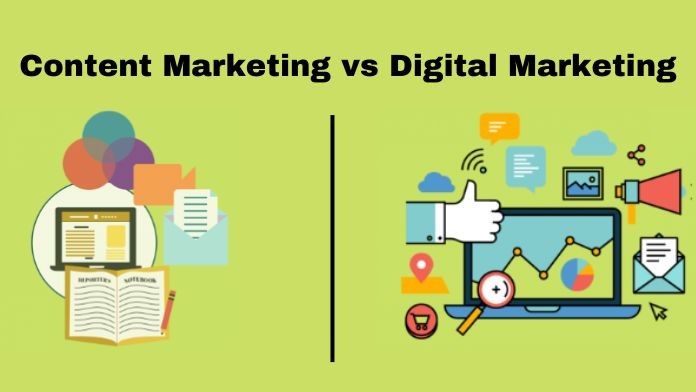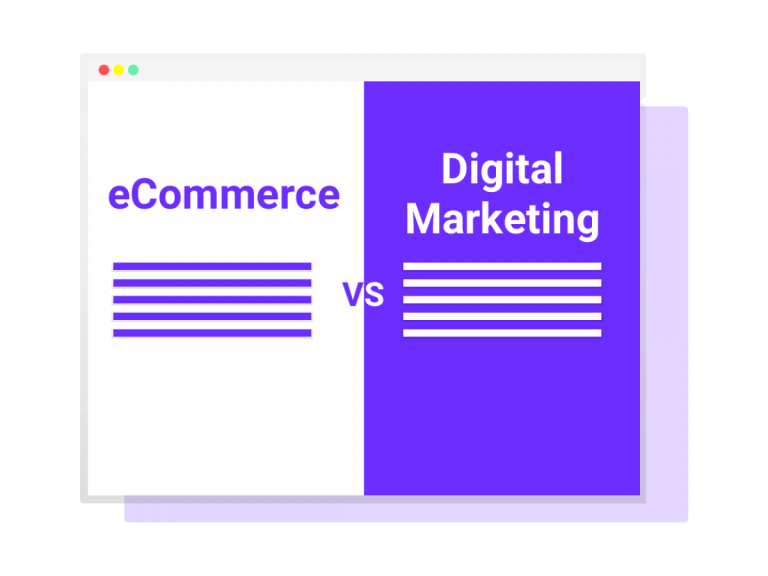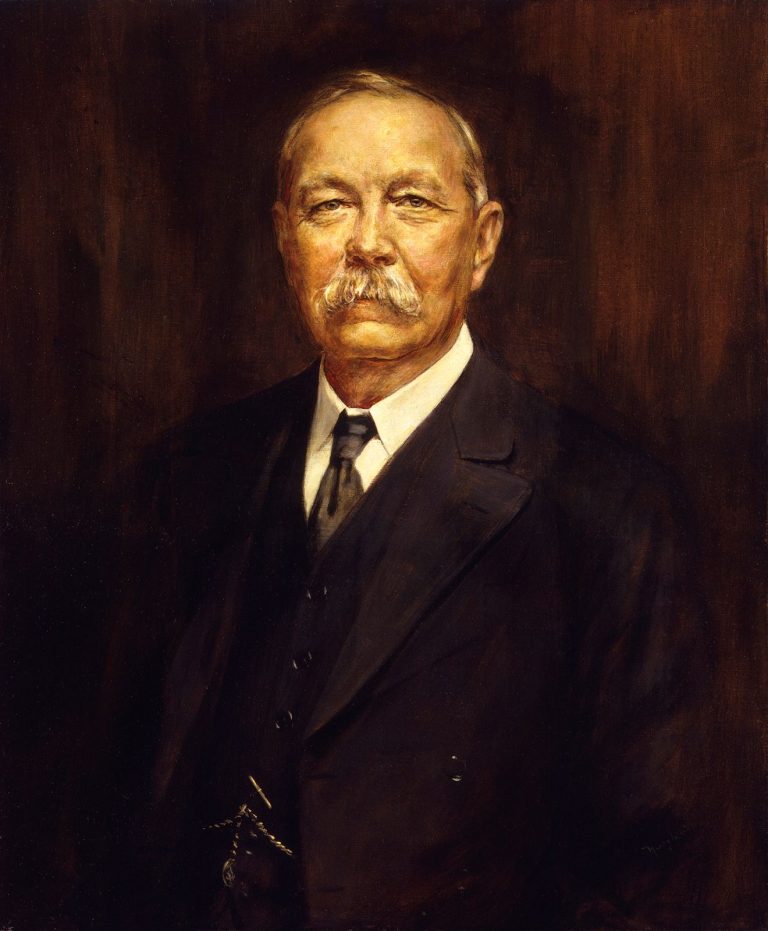Digital marketing encompasses a wide range of online strategies to promote products or services, including SEO, PPC, social media, and more. Content marketing is a subset of digital marketing focused on creating and sharing valuable content to attract and retain a target audience.
Understanding the digital landscape is essential for businesses aiming to establish a robust online presence. Digital marketing serves as an umbrella term; it’s a comprehensive approach that covers various tactics and channels to connect with customers online. This includes optimizing websites for search engines (SEO), leveraging social media platforms, employing pay-per-click (PPC) advertising, and utilizing email campaigns among others.
Content marketing zeroes in on storytelling and information sharing, intending to build brand trust and engagement. It relies on producing relevant articles, videos, podcasts, and other media to capture the interest of potential customers. Content marketing strategies are crafted to provide value to the consumer, fostering deeper connections that go beyond a simple transaction. By pioneering informative and enticing content, this approach supports other digital marketing efforts, driving traffic and improving online visibility.

Credit: rockcontent.com
Breaking Down The Basics
Understanding the digital landscape helps businesses thrive online. Think of digital marketing as a big umbrella. It covers many ways to reach people using the internet. Content marketing lives under this big umbrella. Let’s look at how digital marketing and content marketing differ.
Digital Marketing: The Broad Spectrum
Digital marketing is a term that describes all the methods used to promote a brand online. Here are some key points to note:
- It includes many strategies, like SEO, PPC, and social media.
- It reaches a wide audience across many platforms.
- It uses several tools and channels to connect with potential customers.
- Metrics and analytics are important in measuring success.
Content Marketing: A Focused Branch
Content marketing zeroes in on creating and sharing valuable content. Key points include:
- It aims to attract and engage a specific target audience.
- Content can be articles, videos, podcasts, or graphics.
- The focus is on providing value to build trust and authority.
- Success is often measured by engagement and conversion rates.
| Digital Marketing | Content Marketing |
|---|---|
| Broad strategies | Creating and sharing content |
| Multiple channels and tools | Focuses on value and trust |
| Wide audience | Targeted audience |
| Metrics like ROI and reach | Engagement and conversions |
Scope And Scale Comparisons
Understanding the scope and scale of Digital Marketing and Content Marketing is like comparing the vastness of the ocean to the depth of a single bay. Both have importance in the world of online marketing, yet they operate differently. Let’s unravel how these strategies differ in reach and focus.
The Expansive Reach Of Digital Marketing
Digital Marketing is the big umbrella. It holds various online tactics under its shade. Its reach stretches across:
- Search Engine Optimization (SEO): Tailors websites to rank higher in search results.
- Pay-Per-Click (PPC) Advertising: Offers instant visibility via paid ads.
- Social Media Marketing: Engages with audiences on platforms like Facebook.
- Email Marketing: Sends targeted promotions to inboxes.
- Mobile Marketing: Reaches users on their smartphones and tablets.
This approach includes both paid and organic strategies. It targets audiences at every online touchpoint. Thus, businesses can cast an incredibly wide net.
The Niche Focus Of Content Marketing
In contrast, Content Marketing dives deep. It does not scatter efforts broadly. Instead, it focuses on creating and distributing valuable content to attract a defined audience. Key areas include:
- Blog Posts: Inform and entice readers with relevant articles.
- Infographics: Present data visually for easy understanding.
- Podcasts: Connect with listeners through audio content.
- Videos: Engage audiences with dynamic visual stories.
- Ebooks and Whitepapers: Provide detailed insights on specific topics.
Content Marketing works by building trust. It plants seeds to grow a loyal customer base. The focus remains on depth over breadth.
Strategic Objectives
Strategic Objectives form the blueprint of any successful marketing campaign. In the digital marketing world, the focus often lies on broader goals like generating traffic and maximizing ROI, whereas content marketing zeroes in on building engagement and establishing authority. Understanding how each aligns with your business strategy is key to your online success.
Digital Marketing Goals: Traffic, Conversions, Roi
- Traffic: The lifeblood of any online presence is the number of visitors to your website. A primary goal of digital marketing is to increase this number.
- Conversions: Turning visitors into customers is essential. Digital marketing aims to optimize conversion rates, transforming interest into sales.
- ROI: Ultimately, the goal is to ensure that the money you spend on campaigns yields profitable returns. Monitoring the ROI helps in assessing the efficacy of digital marketing strategies.
Content Marketing Goals: Engagement, Trust, Authority
- Engagement: Content marketing focuses on captivating your audience, encouraging active interaction with your brand.
- Trust: High-quality content fosters trust with your readers, leading to a loyal customer base.
- Authority: By delivering expert insights, content marketing establishes your brand as an authority in the field.
Tactical Toolkits
Digital marketing and content marketing are two branches of the same tree. They need different tools to grow strong. Let’s explore the tactical toolkits that help these strategies blossom in the digital world.
Tools Of The Trade For Digital Marketers
Digital marketers have an arsenal at their disposal.
- SEO Tools: Elevate site visibility and monitor health.
- Analytics: Track website and campaign performance.
- Ad Platforms: Manage paid advertising effortlessly.
- Social Media Schedulers: Keep content timely and consistent.
- Email Marketing Software: Personalize mass communication.
| Tool | Use |
|---|---|
| Google Analytics | Understand audience behavior |
| Ahrefs or SEMrush | SEO and competitor analysis |
| Google Ads | Run and optimize ad campaigns |
| Hootsuite or Buffer | Schedule social media posts |
| Mailchimp | Design and send emails |
Essential Content Marketing Platforms And Tools
Content marketing thrives with creativity and the right platforms.
- Content Management Systems: Central hubs for content creation.
- Graphic Design Software: Make visuals that captivate audiences.
- SEO Writing Assistants: Ensure content is keyword-rich and readable.
- Video Editing Tools: Craft compelling video content.
- Content Calendar Tools: Streamline content planning.
| Platform/Tool | Use |
|---|---|
| WordPress | Develop and manage content |
| Canva | Create dynamic images and graphics |
| Yoast SEO | Optimize content for SEO |
| Adobe Premiere Pro | Edit professional-grade videos |
| Trello | Organize and schedule content effectively |
Types Of Content Within Each Strategy
Digital marketing and content marketing sound similar but involve different strategies. Both use varied types of content to reach their goals. Let’s dive into what kinds of content each strategy employs.
Diverse Content In Digital Marketing
Digital marketing encompasses a broad range of content types. It targets audiences across the digital landscape. Here’s a glimpse into the content mix:
- Social Media Posts: Bite-sized content for platforms like Facebook, Twitter, Instagram.
- Email Campaigns: Personalized messages sent directly to inboxes.
- Video Ads: Engaging, dynamic content for YouTube and social media.
- Display Banners: Visual ads on websites to capture attention.
- Podcasts: Audio content for listeners on the go.
- Infographics: Data-heavy content in a digestible format.
These formats are pivotal in driving traffic, generating leads, and enhancing brand visibility online.
The Role Of Content In Content Marketing
Content marketing focuses on creating valuable, relevant content. It aims to educate and engage the target audience. Here’s what it includes:
- Blog Posts: In-depth articles to address customer questions.
- Ebooks: Comprehensive guides offering deep insights.
- Whitepapers: Detailed reports on specific industry topics.
- Case Studies: Real-world success stories to build trust.
- Newsletters: Regular updates to nurture customer relationships.
Such content helps in building brand authority and fostering long-term customer connections.

Credit: hbr.org
Measuring Success
Measuring Success is vital in deciphering the effectiveness of your marketing strategies. Whether focusing on the broader scope of digital marketing or delving into the specifics of content marketing, setting clear goals and metrics is a must. Understanding the data helps marketers sharpen their campaigns for better performance.
Key Performance Indicators For Digital Marketing
Key Performance Indicators (KPIs) are critical in tracking digital marketing success. These KPIs help determine if campaigns meet their objectives. See the table below for common digital marketing KPIs:
| KPI | Description | Goal |
|---|---|---|
| Conversion Rate | Percentage of visitors who complete a desired action | Higher conversions signal successful targeting |
| Click-Through Rate (CTR) | Ratio of users who click on a specific link to the number of total users who view a page, email, or ad | Higher CTR indicates effective messaging |
| Customer Acquisition Cost (CAC) | The cost associated with convincing a customer to buy a product/service | Lower CAC means more efficient marketing spend |
| Return on Investment (ROI) | Measure of the profitability of the marketing efforts | Positive ROI represents gain from marketing efforts |
How To Measure Content Marketing Success
Content marketing success hinges on engagement and driving action. Metrics are specific to the goals set for the content. Here’s how to measure content marketing success:
- Website Traffic: High traffic shows content is attracting visitors.
- Time on Page: Longer duration indicates content is holding attention.
- Bounce Rate: Lower rates suggest content relevance to the audience.
- Social Shares: Shares signal content value and share-worthiness.
- Lead Generation: Content that generates leads shows a clear path to conversion.
- SEO Rankings: High rankings mean content is well-optimized and visible.
Reviewing these metrics regularly can give insight into what works. It aids in refining the content strategy for better results.
Examples In Action
Digital marketing and content marketing intertwine, yet they follow unique strategies and goals. Examples in action provide real-world context, showcasing how these marketing forms drive success. Let’s explore case studies and impacts through noteworthy campaigns and content strategies.
Case Studies of Successful Digital Marketing CampaignsCase Studies Of Successful Digital Marketing Campaigns
Digital marketing campaigns often use varied channels to achieve widespread engagement. Let’s examine these examples:
- Nike’s Adapt BB Shoe Launch: They harnessed social media ads and influencer partnerships to create buzz.
Dove’s “Real Beauty Sketches” : This campaign employed heartfelt videos shared across digital platforms, significantly boosting brand image.- Spotify’s Yearly Wrapped: Customised playlists paired with data-driven graphics made personalization a key force.
Each case demonstrates how
The Impact Of Well-executed Content Marketing
Content marketing centers on creating valuable and relevant material. This approach strengthens relationships and drives conversions when done right.
- HubSpot’s Educational Blogs: By offering SEO-optimized, useful content, they’ve become a thought leader, attracting substantial web traffic.
- GoPro’s User-Generated Content: Their customer’s adventure videos, shared on GoPro platforms, show product value in an authentic way.
- Cook Smarts’ Infographics: Their visually engaging infographics clarified complex topics, enhancing shareability and subscriber growth.
These examples illustrate how effective storytelling and valuable information are the core of successful content marketing.

Credit: www.linkedin.com
Integrating Digital And Content Marketing
Digital marketing and content marketing may seem similar. Yet, they have different roles in growing brands online. Integrating both creates a powerful strategy. It reaches more people. It also builds lasting relationships with customers.
How Digital And Content Marketing Complement Each Other
Digital marketing uses many channels. It includes email, social media, and search engines. Content marketing focuses on creating valuable content. This content draws people in. Together, they make a full experience for users.
Digital marketing spreads the content. Content marketing keeps people interested. Good content improves SEO. It makes digital ads perform better.
Strategies For Merging Content And Digital Marketing
To blend them, start with clear goals. Know your audience. Create quality content based on this.
- Use data to understand what works. Act on this info.
- Make sure content fits all digital channels. It should look good everywhere.
- Encourage sharing. Make content easy to share. This helps more people see it.
- Track results. See what content brings the best return.
Together, they reach goals faster. They make your brand stand out online.
Future Trends
Exploring the realm of digital marketing takes us on a journey through diverse tactics to capture audience attention. Content marketing forms just one part of this digital tapestry, telling compelling stories to engage users. As we look to the future, these strategies evolve, shaping how brands communicate with potential customers.
Evolution Of Digital Marketing
Digital marketing emerges anew with each tech advance. Future trends signal a shift towards more immersive experiences. Interactive content takes center stage, powered by artificial intelligence and data analytics.
Here are key trends to watch:
- AI Personalization: Brands will deliver tailored content, enhancing user satisfaction.
- Voice Search Optimization: With smart speakers rising, optimizing for voice search becomes essential.
- Augmented Reality Ads: Users will interact with products before purchase, boosting engagement.
Content Marketing: What’s Next?
Content marketing is ready for a transformative leap. Storytelling will remain key, yet the tools and platforms for delivery are changing fast.
Emerging trends include:
| Trend | Impact |
|---|---|
| Video Content Surge | Videos dominate social media, offering higher engagement rates. |
| Ephemeral Content Growth | Short-lived content boosts FOMO, driving quick user actions. |
| Content Communities | Brands build dedicated spaces to foster loyal brand communities. |
Brands that adapt to these trends will stay ahead in the digital marketing game, forging stronger connections with their audience.
Frequently Asked Questions For What Is The Difference Between Digital Marketing And Content Marketing
What Sets Digital Marketing Apart?
Digital marketing encompasses the broad scope of online advertising and promotions. It engages audiences through channels like search engines, social media, emails, and websites. It’s a holistic approach that includes content marketing as a component.
Is Content Marketing A Subset Of Digital Marketing?
Yes, content marketing is a subset of digital marketing. It focuses primarily on creating and distributing valuable, relevant content to attract and retain a clearly-defined audience. It aims to drive profitable customer action through storytelling and information sharing.
How Does Content Marketing Benefit Seo?
Content marketing boosts SEO by providing fresh, quality content that search engines favor. It uses targeted keywords to increase visibility, and engaging content to improve time-on-site and reduce bounce rates, thus enhancing a site’s search ranking over time.
Can Digital Marketing Work Without Content Marketing?
While they’re synergistic, digital marketing can function without traditional content marketing. However, content is key for engagement and conversion, so ignoring content marketing can significantly cripple a digital marketing campaign’s effectiveness and long-term growth.
Conclusion
Navigating the realms of digital and content marketing can be complex. Yet, recognizing their unique roles is crucial for any successful marketing strategy. Digital marketing casts a wide net, while content marketing deepens customer connections. Embrace both to enhance your brand’s online presence and drive meaningful engagement.
Aim for synergy; the impact will follow.






